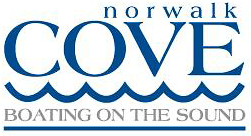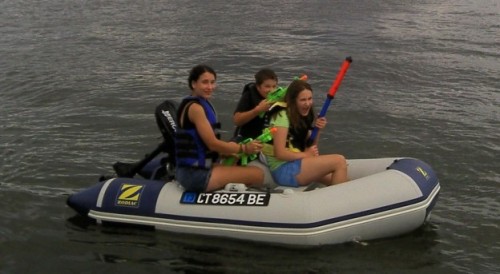Responsibilities of the Captain
November 14, 2019We see the fun plaques: The Captain's word is Law.... or Marriages performed by the Captain are valid ONLY for the duration of the cruise....
But what are the REAL responsibilities of the Captain (vessel operator or "boater") ?
Three Major Responsibilities of Every Boater

- Practice good seamanship. It is the responsibility of every boat or PWC operator to take all necessary action to avoid a collision, taking into account the weather, vessel traffic, and limits of other vessels. Such action should be taken in ample time to avoid a collision and at a safe distance from other vessels. Be responsible for the safety of your crew and vessel.
- Keep a proper lookout. Failing to keep a sharp lookout is the most common cause of collisions. Every operator must keep a proper lookout, using both sight and hearing, at all times. Watch and listen for other vessels, radio communications, navigational hazards, and others involved in water activities.
- Maintain a safe speed. Safe speed is the speed that ensures you will have ample time to avoid a collision and can stop within an appropriate distance. Safe speed will vary depending on conditions such as wind, water conditions, navigational hazards, visibility, surrounding vessel traffic density, and the maneuverability of your boat or PWC. Always reduce speed and navigate with extreme caution at night and when visibility is restricted.


Additional Responsibilities
- Review a pre-departure checklist. (The same actions a pilot must take before taking off) Check the weather. Make sure steering and engine controls are working. Check that lights are working. Check for fuel / oil/ coolant leaks and check hoses. Check the bilge and drain plug. Check fuel level (1/3 fuel rule). Check battery voltage. Check Fire Extinguishers. Check Life Jackets. Leave a Float Plan with a friend.
- Review Safety Items with the crew and guests. Life Jacket and safety equipment. Man Overboard procedures. VHF radio operation. How to call for help. How to stop / start the boat. Reckless operation rules. Trash and dumping rules. Docking / Anchoring procedures.
- Review BWI laws and your boat's rules regarding Alcohol and Drugs. Specify a Designated Operator.
- Review Rules of the Road with your crew, the 3 basic scenarios: Approaching head on, crossing, passing
- Review Aids to Navigation. Red Right Returning (and vice-versa when heading out) and speed limits (NO WAKE within 100 feet of a moored or anchored boat, dock or in the channel... the entire channel)
- Review the basic rule of the sea: You MUST aid another boater in distress unless you are putting your crew or boat in jeopardy by doing so.
Capt. Rick Delfosse 203-216-7800
Rick is a Coast Guard captain, National Safe Boating Council close-quarters boat-handling and open water boat handling instructor, Connecticut and New York certified safe boating instructor and a US Sailing-certified instructor. He also conducts on-the-water courses and classroom seminars on coastal cruising and boating skills. The owner of a 43-foot pilothouse cutter and an Aquasport powerboat, he has extensive cruising and one-design, coastal and offshore racing experience
--------------------------------------------------------------------------------------------------------------------------------------
Categories: None

